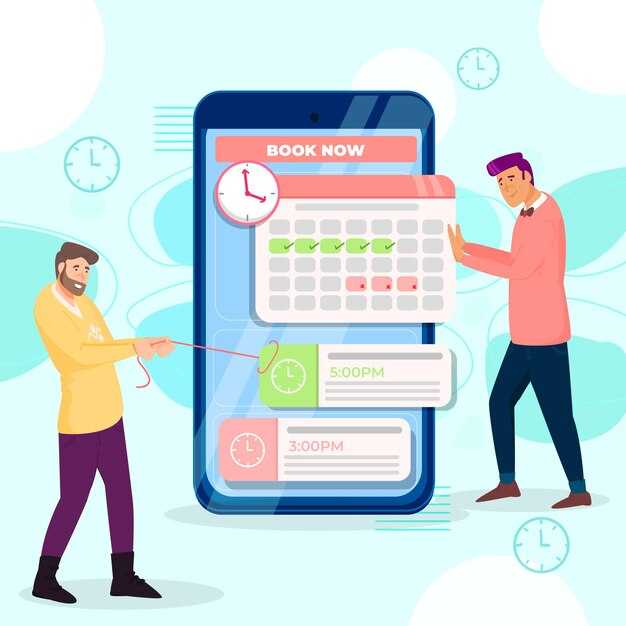This could be the very action that, down the line, saves a marriage. This is a video that should be watched together with your partner, no matter what state your relationship is in — whether everything feels great or one of you is quietly unhappy. Will you both do something a little unusual for the sake of your relationship? Grab a sheet of paper and, separately, each of you write a list of the things that make you feel most loved. Here’s what will likely happen: one partner will be thrilled with the idea — and if that’s you, your spouse probably already knows you’re the enthusiastic type, so don’t overthink it. Even if you feel like you’ve said this a hundred times, say it one more time, without bitterness or resentment. On the other side, it’s common for one partner to dismiss this exercise as unnecessary or even silly. That’s understandable, but it’s also important to recognize that this isn’t trivial. The person sitting beside you wants a healthy, loving connection; they aren’t trying to shame you or make you feel inadequate. They simply want the relationship to thrive, and that won’t happen unless both of you put effort into meeting the ways the other person feels loved. When someone writes down what matters to them, they’re not condemning you — they’re explaining how they experience closeness and hoping you’ll be that person for them. If something they note raises serious concerns for you, bring that up with a qualified professional; ignoring or avoiding a big issue will only let the relationship deteriorate. For the partner who’s excited about this assignment: don’t overload your spouse with a huge list right away. It’s tempting to jot down fifty things you want and expect them to start yesterday, but remember to meet them where they are. Begin small — pick five clear, actionable things the other person can do that will make you feel loved. Avoid vague requests like “be more affectionate,” because those words mean different things to different people. Instead say something concrete: “I feel loved when you show non-sexual affection — kiss me, hug me when you walk by, tell me I’m beautiful, send a text saying you’re thinking of me without implying sex later, and tell me specific reasons why you love me rather than just saying you love me.” Don’t say “prioritize me” without examples; give tangible ways that looks, whether it’s gifts, surprise dates, genuinely listening and asking about your inner life, cutting back on overtime to carve out quality time, or something else specific. Be precise. If you’re the partner who struggles with this kind of exercise, know this: sometimes it’s genuinely hard to identify what makes you feel loved. That can come from not being fully in touch with your own emotions and needs, and if you’re disconnected from yourself it’s very difficult to be close and present with another person. This isn’t about blame; it’s about awareness. To help, think about what already matters to you: feeling appreciated, hearing that you’re getting things right instead of only being corrected, having independence, or feeling desired by your partner. Point out the behaviors they already do that you enjoy so they can do more of them. Then comes the crucial part: do what’s on each other’s lists for seven days. Don’t treat the lists like a one-time exercise and then forget them — build the habits, set reminders, write it somewhere you’ll see it. Make it a real priority because it is important. If a partner can’t commit to loving the other person in the ways that person needs for an entire week — or if they refuse to try this at all — then perhaps that relationship isn’t what they truly want, and ending it would be kinder than staying and causing more harm. But if you’re willing, follow the lists wholeheartedly. Go above and beyond. This is how trust, intimacy, and emotional closeness are created or broken: through small, consistent acts of learning about one another and showing up. Actions prove that it’s more than words — “I will love you in the ways that matter to you because you matter to me.” This simple commitment could be the catalyst that brings new life and hope to a relationship that may have been drifting in a troubling direction. If arguments erupt while you’re doing this, pause and seek help from a qualified professional before continuing. The hope is that after seven days things will feel different — better — and that you’ll choose to keep practicing these habits instead of slipping back into old patterns. That decision can make a huge difference compared with what came before. Good luck — and please share how it goes.

Practical tips to make the exercise work:
– Set aside an uninterrupted 15–30 minutes to write your list so you’re not rushed.
– Keep the first lists short (3–7 items). This increases the chance they’ll actually be practiced.
– Use clear action words: “bring me coffee in the morning,” “ask me how my day went and listen for five minutes,” “hold hands while walking,” “plan one date night this week,” or “tell me one thing you appreciate about me each day.”
Examples by category (to spark ideas):
– Words: “Tell me specific things you appreciate about me,” “Say thank you when I do the chores.”
– Time & Presence: “Put your phone away during dinner,” “Spend 30 uninterrupted minutes of conversation.”
– Affection: “Hug me in the evening,” “Sit next to me on the couch.”
– Acts: “Help with bedtime routine,” “Make my favorite meal once a week.”
– Gifts/Surprises: “Bring a small, thoughtful gift occasionally,” “Leave a note in my bag.”
How to introduce the exercise without defensiveness:
– Use “we” language: “Can we try something together to help our connection?”
– Normalize different responses: “One of us might find this easy and the other might find it odd — that’s okay.”
– Offer a short script to share lists: “I made a short list of things that make me feel loved. Would you like to read it now or later?”
When needs conflict or seem impossible:
– Prioritize safety and boundaries. If a requested behavior violates a boundary, say so kindly and propose an alternative.
– If both partners want different kinds of time (one wants long conversations, the other needs quiet), negotiate a compromise such as a daily 20-minute talk plus separate quiet time.
– Remember that willingness and capacity are different—someone may want to meet your need but lack skills or energy. In that case, thank them for trying and suggest small, manageable steps.
Troubleshooting common problems:
– If one partner forgets, use gentle reminders: set a phone alarm or put the list on the fridge.
– If one partner resists, ask what feels uncomfortable and explore together whether a smaller, temporary version could work.
– If the exercise leads to strong emotions or recurring conflict, pause and get outside support — a couples therapist or counselor can help translate needs into workable behaviors.
Maintaining change after seven days:
– Turn the most powerful items into habits by attaching them to existing routines (habit stacking). For example, after brushing teeth (existing habit), give a hug (new habit).
– Schedule a weekly check-in to review what’s working, what’s not, and adjust lists.
– Celebrate small wins. Noticing progress reinforces behavior more than pointing out failures.
Finding professional help and other resources:
– Look for licensed couples therapists or counselors in your area, read reviews, and consider a brief phone consultation to see if they are a good fit.
– If finances are a concern, search for sliding-scale clinics, community mental health centers, or online therapy platforms.
– If trauma, addiction, or safety concerns are present, seek professionals who specialize in those areas and, if needed, prioritize personal safety planning.
Final reminders:
– Be patient with yourself and your partner. Change takes repetition, empathy, and humility.
– Avoid using the exercise as a weapon (e.g., “You never do this”), and instead use it as a map for positive action.
– The goal is not perfection but consistent, caring attempts to love the other person in ways that they can feel and accept.


 Tato jednoduchá otázka naprosto změnila moje manželství.">
Tato jednoduchá otázka naprosto změnila moje manželství.">

 Jak přestat UBLIŽOVAT svému partnerovi.">
Jak přestat UBLIŽOVAT svému partnerovi.">
 Why You Miss the Red Flags (Until You’re Already Trapped)">
Why You Miss the Red Flags (Until You’re Already Trapped)">
 Plánování "Intimity" Souhlasíte nebo Nesouhlasíte?">
Plánování "Intimity" Souhlasíte nebo Nesouhlasíte?">
 5 Trauma Habits That Are Secretly Ruining Your Life">
5 Trauma Habits That Are Secretly Ruining Your Life">
 Keep God out of Relationships.Right?">
Keep God out of Relationships.Right?">
 How to FIX your MARRIAGE! You’ll need these TOOLS!">
How to FIX your MARRIAGE! You’ll need these TOOLS!">
 Přesný okamžik, kdy vyhýbavý jedinec konečně praskne | Nejlepší motivační projev Mel Robbins">
Přesný okamžik, kdy vyhýbavý jedinec konečně praskne | Nejlepší motivační projev Mel Robbins">
 4 Questions Avoidants can’t answer, Don’t be Late, Ask them This | Jordan Peterson">
4 Questions Avoidants can’t answer, Don’t be Late, Ask them This | Jordan Peterson">
 Tyto znaky naznačují, že se vyhýbavý člověk cítí k tobě autentickou lásku (Psychologie)">
Tyto znaky naznačují, že se vyhýbavý člověk cítí k tobě autentickou lásku (Psychologie)">
 Jak ověřit iracionální pocity Vašeho partnera">
Jak ověřit iracionální pocity Vašeho partnera">